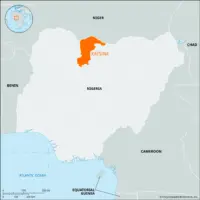The Lagos State Government has asked the Supreme Court for permission to initiate contempt proceedings against the National Assembly (NASS) over the proposed Central Gaming Bill, 2025.
In a motion filed by Senior Advocate of Nigeria (SAN) Bode Olanipekun on behalf of the state’s Attorney-General, Lagos is seeking the apex court’s approval to begin enforcement proceedings through the issuance of Form 48 a formal notice warning of the consequences of disobeying a court order.
The move comes amid an ongoing dispute between Lagos and the National Assembly over the proposed Central Gaming Bill, which aims to regulate online and remote gaming activities nationwide, including operations in the Federal Capital Territory (FCT).
The bill, currently before both chambers of the National Assembly, seeks to replace the repealed National Lottery Act of 2005.
Lagos State, however, contends that the new bill directly contravenes a November 2024 Supreme Court judgment that invalidated the enforcement of the National Lottery Act across the 36 states of the federation.
The court had ruled unanimously that the National Assembly lacks constitutional authority to legislate on matters of lottery and gaming, declaring such issues as the exclusive responsibility of state governments.
READ ALSO: Enugu Seals Alleged Illegal Gaming Outlets
In its affidavit supporting the motion, the Lagos government argued that the Central Gaming Bill mirrors the repealed National Lottery Act by using nearly identical definitions for “gaming” and “lottery,” despite the court’s ruling that such subjects fall outside federal jurisdiction.
The state noted that since the Supreme Court’s decision last year, the 1999 Constitution’s exclusive legislative list has not been amended to include gaming or lottery, making the National Assembly’s current move a direct violation of the apex court’s judgment.
The original suit, filed by Lagos in 2008 and later joined by Ekiti and other states, sought judicial clarification on whether control and regulation of lottery and gaming belong to state or federal authority.
In November 2024, the Supreme Court resolved the issue in favour of the states, ruling that only state assemblies have the power to legislate on such matters.





